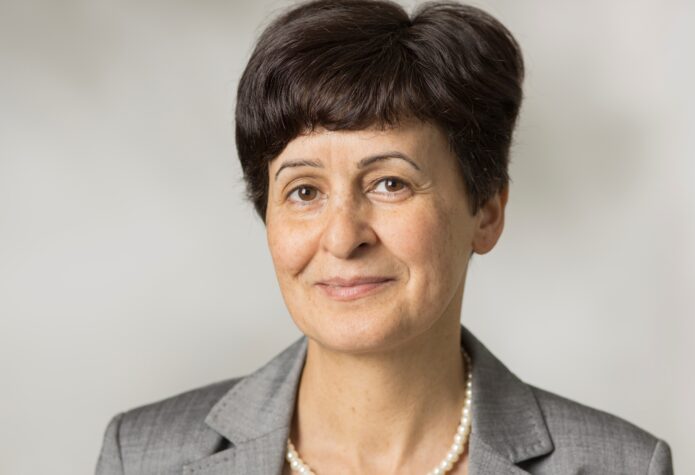Sweden: Waste too valuable to throw away

Waste is too expensive to throw it away. In fact, waste is a lucrative business niche. Today’s Sweden shows a great example of turning waste into energy. It is a revolution, a recycling revolution we are witnessing, says Dr Raziyeh Khodayari in an interview with NIB Newsletter.
Of all 4.5 billion tonnes of household waste generated in Sweden a year, less than one percent ends up in a landfill.
According to Avfall Sverige, the Swedish waste management association, about one third of household waste goes to material recycling. Some 16% undergoes biological treatment. Finally, the rest, or slightly less than half of household waste, is used for the production of heat and energy.
“This is a true recycling revolution”, says Dr Raziyeh Khodayari, Head of Section Environment and Fuel Supply at Svensk Fjärrvärme, the Swedish district heating association.
This is a revolution and Sweden is way ahead of the rest of the EU. According to Dr Khodayari, the main reason is that landfilling is banned in Sweden and still allowed in most other countries.
Since 2000, Sweden has had a special landfilling tax system. While taxes and prohibitive fees surely make one think twice before dumping rubbish on a landfill, the legislators decided there must be something more to it to kick start what has eventually made Sweden a European champion in waste management. In 2002, a law prohibited the landfilling of waste that can be used in energy production. Another ban—on the landfilling of organic waste—followed in 2006.
“The ban on landfilling and its implementation has been the most efficient way to increase material and energy recovery,” says Dr Khodayari.
Over the years, Sweden has been rolling out an infrastructure to tackle the ever growing mountains of rubbish. Today, the country has 32 waste-to-energy plants, both municipal and private. Combined, these plants produce 22%, or 13.8 TWh, of all heat in the country and 1.2%, or 1.8 TWh, of electricity. This is enough to provide heat for 960,000 households and electricity for 560,000 private houses.
“As a result of this development, companies and municipalities have received a possibility to deliver low-price heat and electricity to the customers. Don’t forget the environmental aspect—the sorted waste decreases the use of fossil or other fuels in the production of energy and heat”, Dr Khodayari continues.
The waste-to-energy plants play a major role in setting up and advancing the waste collection system in the country. The waste used in energy and heat production is being sorted with good care following very strict criteria.

“Today, the Swedish waste collection system is one of the most modern ones in the world. The collection point is often just 300 metres away from the house with vessels for paper, plastic, metal, glass and residual food.”
Raziyeh Khodayari
Head of Section Environment and Fuel Supply at Svensk Fjärrvärme
Svensk Fjärrvärme is a trade association of 130 district heating, cogeneration and district cooling companies in Sweden.
Photo: Svensk Fjärrvärme
Besides the household waste, the incineration plants recover heat and energy from industrial waste and use installations for flue gas condensation. Modern technologies make it possible to tap heat from the flue gas before release into the air. Cleaning flue gas and wastewater at the modern waste-to-energy facilities has nearly eliminated emissions of heavy metals. In combination with the country’s district heating system, this allows the Swedish waste-to-energy industry to achieve a 95% efficiency rate as a mean value for all plants.
What is the learning point for those who are still deposing solid waste on landfills?
“While the ban on landfilling is one of the major attributes of the Swedish waste revolution, it is essential to invest in a well-functioning infrastructure for energy recovery and state-of-the-art technologies that help reduce the industry’s environmental footprint. And the sizeable investments would have hardly paid off without an efficient waste collection system that has been set up in a way fairly comfortable for each household to handle”, concludes Dr Khodayari.